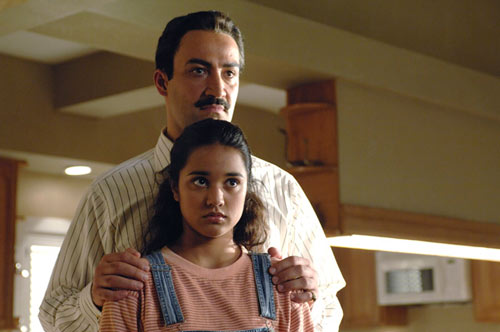
In Alicia Erian's novel Towelhead, Jasira's mother, angrily packing a suitcase, tells her daughter to call her a cab. A suburban 13-year-old doesn't often use taxis, and Erian takes us through the details of Jasira's thought process, which begins in confusion. She tries the yellow pages but isn't sure what to look for. "Cab" takes her to "taxi," "taxi" takes her to a number of choices, one of which leads to a phone call, which raises questions about location and destination.
But on that day, without direction or supervision, meek and naive Jasira successfully schedules a cab for her mother, and her pride at having run this gauntlet is tamped down by parents who don't even know the gauntlet exists.
Most of the trials in Erian's novel aren't about calling for cabs. They're sexual in nature, and they involve various predators who swarm around Jasira, and while Alan Ball includes many of these trials in his awkward new film based on the book, he's omitted the one about the cab. More importantly, he's omitted -- or failed to convey -- the all-important sense of wonder and trepidation that a young person can feel solely because her view of the world is limited by lack of experience. The episode with the cab mirrors a dozen others that would -- and do, in the film -- lean toward the lurid and titillating when stripped of the child's logic.
Ball has recorded the motions but none of the understanding, and his heavy-handed direction punches up each character's cartoonish traits while eliminating any nuance. So Jasira's father is a racist, and the woman next door is a nosy bitch. I get the feeling that even Ball didn't intend those simplistic characterizations, but that's what clumsy direction will do to a story full of minefields.



